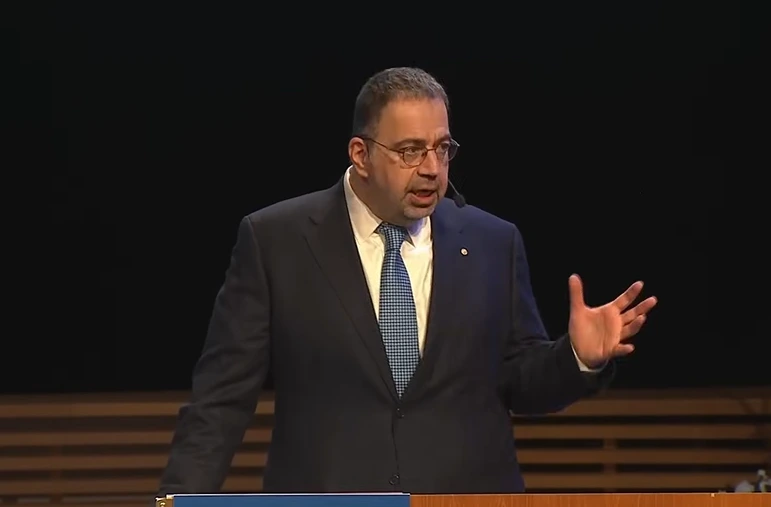Explore the academic journey and groundbreaking contributions of Daron Acemoglu, one of the world’s most influential economists. Learn about his theories on institutions, innovation, and inclusive growth.
Daron Acemoglu, a globally renowned Turkish-American economist, stands at the forefront of modern economic and political theory. Known for his pioneering research on institutions, development economics, and political economy, Acemoglu has fundamentally reshaped how scholars and policymakers understand the roots of prosperity, inequality, and technological transformation in both developed and developing countries.
Academic Background
Daron Acemoglu was born in Istanbul, Turkey, in 1967. He completed his undergraduate degree at the University of York in the United Kingdom and went on to earn his Ph.D. in economics from the London School of Economics (LSE) in 1992.
Currently, he serves as the Institute Professor at the Massachusetts Institute of Technology (MIT), one of the most prestigious academic positions at the university. His role at MIT includes teaching, research supervision, and active contributions to policy-relevant economic discourse.
Key Research Areas
Acemoglu’s academic work spans a broad range of fields, with a particular focus on:
- The Role of Institutions in Economic Development
- Political Economy and State Formation
- Technology, Automation, and Labor Markets
- Authoritarianism, Democracy, and Economic Outcomes
His research often bridges the gap between economic theory and real-world policy, providing rigorous empirical and historical evidence to support his conclusions.
Groundbreaking Contributions
1. Institutions and Economic Development
One of Acemoglu’s most influential theories argues that inclusive institutions—those that provide property rights, rule of law, and open access to economic opportunity—are central to long-term development and prosperity. In contrast, extractive institutions, which concentrate power and wealth in the hands of a few, lead to stagnation and inequality.
This framework was most famously outlined in his co-authored book:
“Why Nations Fail: The Origins of Power, Prosperity, and Poverty” (2012)
Co-authored with James A. Robinson, this international bestseller presents a compelling institutional explanation for the divergence in global economic development. The book has been translated into over 40 languages and remains a seminal reference in development economics.
2. The Political Origins of Institutions
In their earlier academic work, Acemoglu and Robinson introduced the idea that political power shapes economic institutions—and vice versa. In papers such as “The Colonial Origins of Comparative Development” (2001), they used historical data to show how colonial policies created persistent institutional differences between countries.
3. Technology, Inequality, and the Future of Work
In recent years, Acemoglu has shifted focus to the economic impact of automation, AI, and digital technologies. His work critically examines how innovation can both enhance productivity and exacerbate inequality when not aligned with inclusive policies.
Notable publications include:
- “The Race Between Man and Machine” (2011)
- “Artificial Intelligence, Automation, and Work” (with Pascual Restrepo, 2019)
In these studies, Acemoglu warns that unchecked automation may reduce employment opportunities and depress wages, unless innovation is directed toward human-complementary technologies.
Awards and Recognition
Daron Acemoglu’s work has earned him global accolades, including:
- John Bates Clark Medal (2005) – Awarded to the most outstanding American economist under the age of 40.
- BBVA Foundation Frontiers of Knowledge Award (2016) – For contributions to economic development.
- Repeated listings as one of the most cited economists globally, with tens of thousands of academic citations.
- Honorary doctorates and academic recognitions from top institutions worldwide.
Influence on Policy and Public Discourse
Beyond academia, Acemoglu actively contributes to global economic policy debates. His research is frequently cited by the World Bank, International Monetary Fund (IMF), and United Nations Development Programme (UNDP). He has also participated in discussions on AI governance, democratic resilience, and economic reform in both developed and developing nations.
Daron Acemoglu remains one of the most influential voices in contemporary economics. His research not only provides a deep theoretical understanding of how institutions and innovation shape societies but also offers practical insights into building more inclusive and resilient economies. As global challenges like inequality, authoritarianism, and technological disruption grow more urgent, Acemoglu’s work continues to illuminate the paths toward equitable progress.
